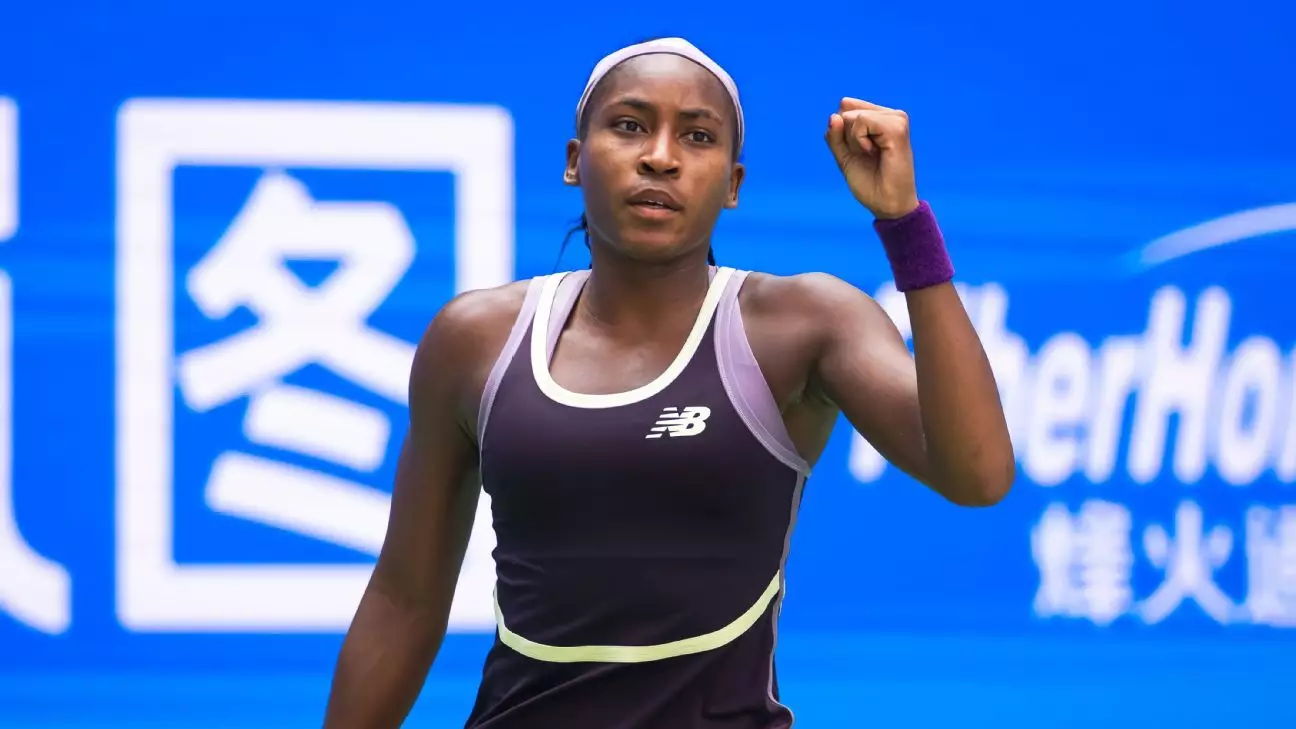The decision to host the WTA Finals in Saudi Arabia from 2024 to 2026 has sparked a complex conversation surrounding gender equality and human rights within the kingdom. Coco Gauff, the 2023 US Open champion, weighed in with a perspective that acknowledges both potential and reservations regarding this historic move. With the Finals set to feature the top singles players and doubles teams, the event signals a pivotal shift for women’s sports in a region that has often been scrutinized for its oppressive cultural practices.
Gauff’s remarks underscore the duality of the situation: while the event represents a significant milestone for women in sports, it also serves as a platform for broader issues of equality that remain deeply entrenched in Saudi society. As the first professional women’s tennis competition hosted in this conservative environment, Gauff expressed hope that the visibility of female athletes could play a role in promoting change. However, she did not shy away from acknowledging her apprehensions, revealing a complex internal process as she navigates the implications of participating in such an event.
The prospect of using sports as a catalyst for social change is a familiar narrative. Gauff articulated a belief that by engaging with the local community, particularly through initiatives like the WTA’s Future Stars program, meaningful dialogue could arise. This initiative aims to introduce Saudi women to tennis with an ambitious goal of fostering one million players by 2030. Gauff sees this engagement as critical to igniting progress within a culture where women’s rights and LGBTQ issues have historically faced significant barriers.
The WTA’s decision to invest in local programs highlights a commitment to integrating sporting events with social betterment. Yet, there remains a lingering skepticism about the authenticity of such endeavors, especially amidst accusations of “sportswashing”. Critics argue that Saudi Arabia has used high-profile sporting events as a cover to distract from its broader human rights violations. Gauff’s involvement presents a significant opportunity to not only witness the situation firsthand but also to shape how athletes can play a role in demanding change.
Prominent figures in the tennis community, including legends like Chris Evert and Martina Navratilova, have openly criticized the WTA’s decision to stage the Finals in Saudi Arabia. Their objections reflect a broader concern about the ethical implications of profiting from a country that stands accused of egregious human rights abuses. In contrast, Gauff positions herself as both an athlete and an advocate, emphasizing the importance of dialogue rather than a simple condemnation.
Her approach highlights the dual role that athletes can assume in today’s society, leveraging their visibility to address critical issues. Gauff has been proactive in engaging with Saudi women, such as Princess Reema Bandar Al Saud, to discuss vital topics like LGBTQ rights and women’s empowerment. Such discussions are crucial in determining how athletes can contribute significantly and authentically rather than merely participating in events devoid of cultural understanding.
As the world No. 3 prepares to compete in the upcoming Finals, her commitment to observing the societal landscape firsthand serves as a testament to her seriousness about the issues at hand. Gauff recognizes that returning to Saudi Arabia in the future will depend on witnessing tangible progress toward gender equality and LGBTQ rights. This conditional mindset not only highlights her personal integrity but also emphasizes the need for accountability within the realm of professional sports.
Staging the WTA Finals in Saudi Arabia is a multifaceted endeavor that encapsulates both opportunity and challenge. While it offers a platform for change, it also demands rigorous scrutiny and dialogue. Coco Gauff exemplifies a new generation of athletes who are willing to engage deeply with the social ramifications of their presence, turning competitive sports into arenas for advocacy. Her journey offers glimmers of hope, emphasizing that visibility can indeed play a pivotal role in advancing issues of equality, provided there is a concrete commitment to drive change beyond the confines of a tournament.


Leave a Reply